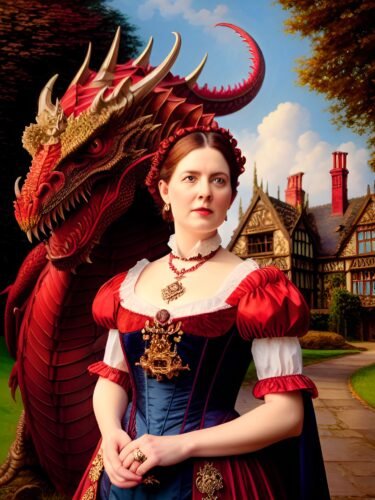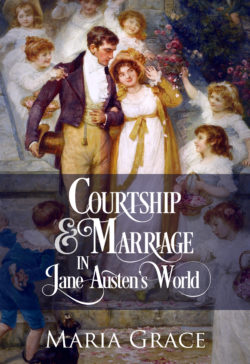How Dragons change Spheres of Female Influence

One of the challenges facing Elizabeth Darcy and Anne Wentworth (and a few more up and coming female dragon Friends) in the Jane Austen’s Dragon’s series is the disconnect between the role society established for women and the expectations of the dragons. Dragon society is based on dominance rather than gender, and female dragons can and often are very dominant dragons. So they deal with their warm-blooded Friends with those expectations in mind.
Regency society, though, does not perceive the world the same way as the dragons. In that era, women had a very particular place, especially married women.
Regardless of the nature of her relationship with her husband, once a woman married, her focus was supposed to turn to entirely domestic pursuits. (Clearly the Dragon Council, Pemberley, and Kellynch do not agree.)
“The tour of a woman’s gaiety should terminate with marriage. From that moment her pursuits should be solid, and her pleasures circumscribed within the limits of her household. …The angel of courtship has sunk into a woman, and that woman will be valued principally as her fondness lies in retirement, and her pleasures near the nursery of her children. Nor are these pleasures small. Whatever fashion thinks, they have a secret relish, which the world cannot give.” (Bennett, 1811) This advice strongly suggests that Dragon Keeping ought to be left to men.
A woman was supposed to give herself entirely to managing her husband’s domestic affairs, in both town and country, if his wealth allowed for two houses. This included managing and educating children, handling budgets, clothing the entire family appropriately, feeding said family, managing all household chores herself or directing the staff who would accomplish them, handling social correspondence, entertaining and being a social asset to her husband in all ways.
Whew! A little exhausting just thinking about it. Even if managing the dragon-related affairs of the family or the estate don’t seem to make the list.
Of course, even in these areas our regency era matron could not just assume authority, but must act in accordance with her husband’s wishes, even though conduct writers advised:
“It is allowed, that every man should be master of his own house, a prerogative which he may preserve inviolate, without in the least interfering with that of his wife; and, in general, it will contribute more to his comfort if she is left to the quiet direction of those concerns which are more immediately within her province. ” (Taylor, 1822)
The latter might be considered good advice, especially when the local estate dragon had a particular fondness for the lady of the house. Even so, it would have been considered improper for the wife to go against her husband’s wishes.
So what happens when the dragons demand something different from what society requires? Well, our Blue Order heroines find themselves at odds, not just with society, but sometimes with the more traditional factions within the Order itself. The Officers of the Order often have a difficult time with the Lady Sage because she is often acting outside the understood sphere of female influence-which might help explain her reputation for being draconic rather than ladylike.
When faced with keeping either the cold-blooded or the warm-blooded happy, this generation of Blue Order heroines is blazing a trail away from social expectations, and leaving dismay and discomfiture for the traditionalists in their wake.
Find References Here!
To Read more articles on weddings, click here.
To read more articles on courtship click here.
To read more articles on marriage click here.
If you enjoyed this post, you might enjoy this book:


Comments
How Dragons change Spheres of Female Influence — No Comments
HTML tags allowed in your comment: <a href="" title=""> <abbr title=""> <acronym title=""> <b> <blockquote cite=""> <cite> <code> <del datetime=""> <em> <i> <q cite=""> <s> <strike> <strong>